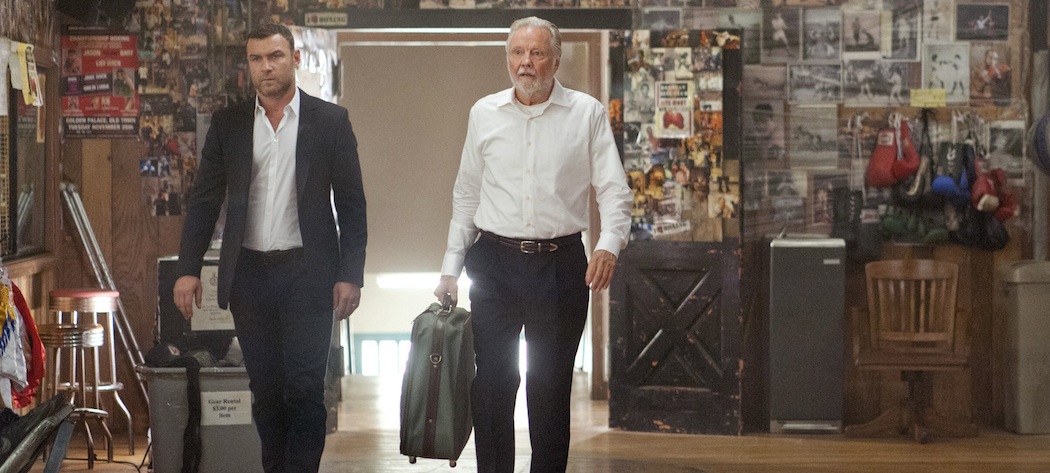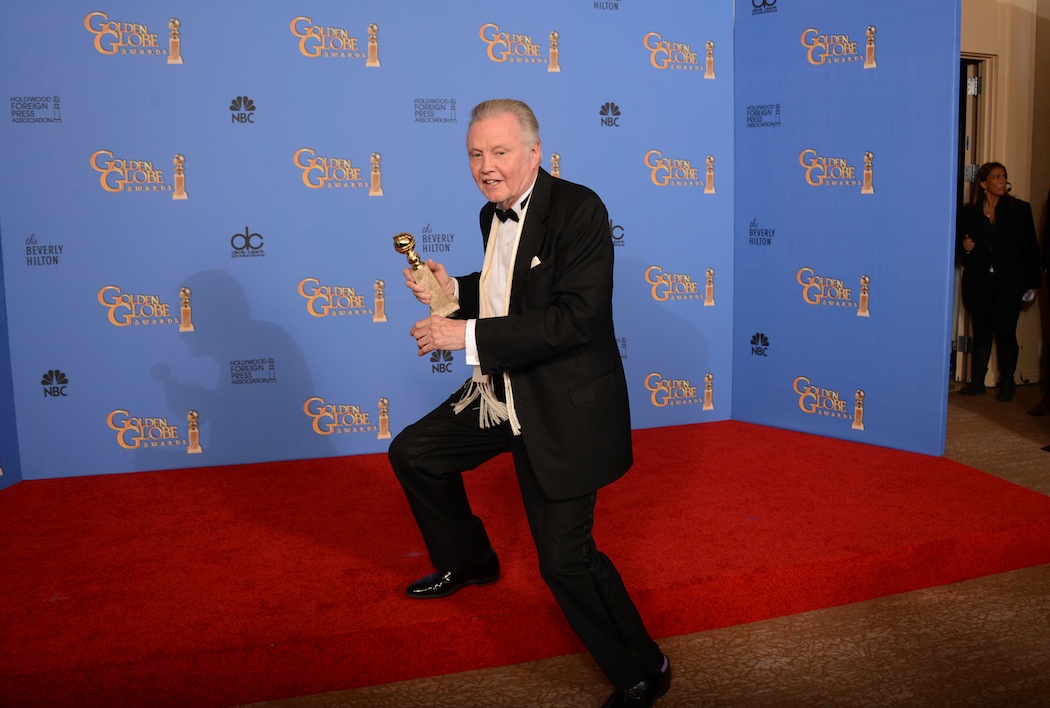Advertisement
Local Crime Writer Likes The Way 'Ray Donovan' Brings Boston To LA

The first thing you might or might not have noticed when watching "Ray Donovan" is that there’s no opening sequence. "The Sopranos" had one of the most iconic opening sequences in recent memory — Tony driving along the Jersey Turnpike to "Woke Up this Morning." "The Bridge" has those stylish scenes of El Paso and Juarez blending together to the soulful tune of "Until I’m One With You." "True Detective" has maybe the most artistic sequence yet, done to the eerie beat of "Far From Any Road."
And "Ray Donovan," nothing except the title of the show in stark white lettering against a black background. That’s it. A bold move, and really a statement that’s every bit as brash as the ex-Bostonian characters who populate the show, saying "We’re good enough not to need a flashy sequence. We’ll let the show speak for itself."
When the show premiered last year, it took me several episodes to warm up to it. Liev Schreiber as Ray Donovan plays an ex-Southie guy working in LA as a professional fixer — someone who makes problems for the wealthy go away. A girl ends up dead in a superstar athlete’s hotel room? Call Ray. An embarrassing video is about to be released that will destroy an actor’s career — again, call Ray. The show seemed too one-note to me, but that was my mistake for making the assumptions I did.

I should’ve known better, especially given how the first episode opens with Ray’s dad, Mickey, who after being released from prison proceeds to hunt down and execute a priest. Jon Voight has earned a well-deserved Emmy nomination for his portrayal of Mickey Donovan, to go along with his Golden Globe — and it was his performance that hooked me and kept me watching until I realized what the show is really about.
Mickey is a schemer with a thin veneer of charm. He’s someone who is going to bring serious damage to those close to him — he’ll have his rationalizations for why it’s not his fault, and maybe even believe them. When he sets up one of his sons who idolizes him to get his head handed to him in the ring, Mickey doesn’t understand why his son’s pissed. After all, it was just a beating, and look at all the money he made for the two of them taking bets against his son.
What the show is really about is past crimes and old ghosts coming back to haunt you. In Ray’s case, it’s his wife Abby who invites trouble into their home. She doesn’t understand Ray’s history with Mickey, or the grudges the two of them have against each other. Ray has a long laundry list — including holding his dad responsible for his mother’s death, his sister’s suicide, and for allowing a pedophile priest to molest his brother. Mickey has his own grudge — the reason he was in prison was because Ray framed him for a murder committed by one of Ray’s clients.
When Mickey’s actions start looking like they’re going to land Ray in prison, Ray heads back to Boston to search for the fugitive Southie mob boss Sully — a thinly disguised version of Whitey Bulger, played with psychopathic aplomb by James Woods.The reason — Ray wants Sully to kill his dad. It was when Sully entered the show that I was sold for good. Abby might’ve opened the door to trouble, but Ray has brought the devil into their backyard with Sully, and of course, it blows up spectacularly as the latter has his own agenda.
Season Two sees Ray having to dig out of the mess he created, and while Season One was a lot of fun, Season Two has upped the game and so far been "Fargo"-worthy — which is something I don’t say lightly. The biggest danger to Ray’s life is the LA FBI Chief, Ed Cochran, who needs Ray to make sure the FBI story of what happened with Sully is the only story out there. Played by Hank Azaria, Cochran is yet another transplanted ex-Bostonian, and as demonstrated in the last episode, is not the boy scout he first appears to be — he has the potential of being an even bigger threat to Ray than either Mickey or Sully.
I should talk about the Boston accents. A bad Boston accent on a TV show or movie can hit us Bostonians like nails on a chalkboard. Alec Baldwin’s horrible one in "The Departed" bugged the hell out of me. I personally find the accents in Ray Donovan benign — even Abby, who has the most pronounced one (and to me sounds almost exactly like a woman I once worked with from East Boston).
Until I heard someone complaining about Jon Voight’s accent, I wasn’t even paying attention to him doing one — that’s how benign I found it. While I usually prefer it when shows have their Boston characters talk normally, as "Cheers" did with Sam and Diane, the accents on "Ray Donovan" demonstrate that these characters just don’t fit into LA. But the accents are the least of it.
It’s the near psychopathic rage that can explode from these characters at any moment that separates them from the other LA residents. Given all the mayhem characters like Sully, Mickey and other expat Boston characters wreak, I also can’t help wondering if the producers thinks of Bostonians as if we were rabid dogs being unleashed on their LA.
Dave Zeltserman’s crime and horror novels have been named by WBUR, The Washington Post, NPR, American Library Association, and Booklist as best books of the year. His mystery short fiction featuring the brilliant and eccentric Boston detective, Julius Katz, has won the Shamus, Derringer and Ellery Queen's Readers Choice award (twice). His latest horror novel, "The Boy Who Killed Demons," featuring a Newton North high school student who must save the world from demons, will be published by Overlook Press this October.

